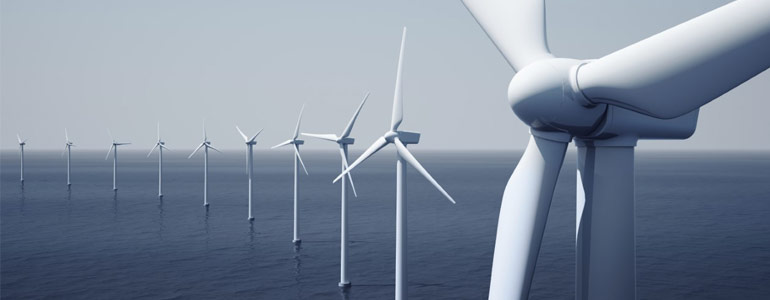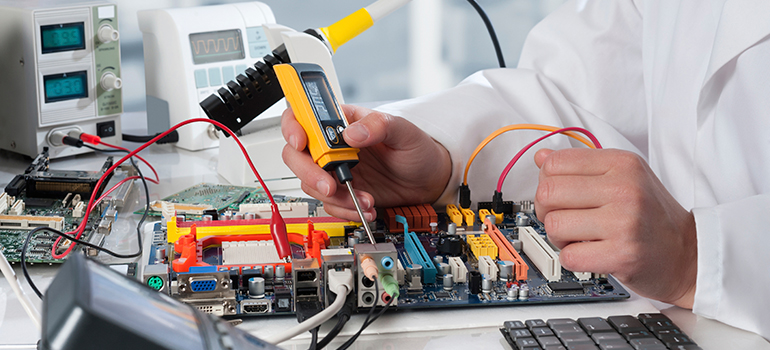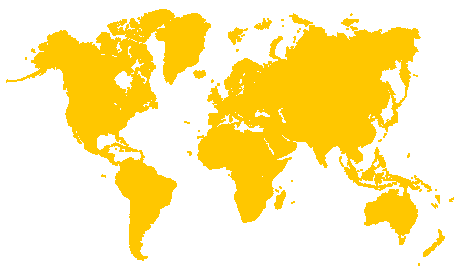Corrosion, an Issue for the Offshore Wind Industry - Part 3

Cathodic Protection (CP) - Installation Issues
03 April 2018
Previous blogs have described possible corrosion issues of monopile structures used in the offshore wind industry and how Intertek P&IA have been able to support our clients with bespoke designed test rigs and mathematical models to enhance our client’s understanding on this matter. In this blog, we discuss the design, installation and practicality of cathodic protection systems to the internals of submerged monopile structures.
Our client selected Intertek P&IA to prepare a CP design for the internals of monopiles for an offshore windfarm, based on our extensive oil and gas (O&G) industry CP experience. Whilst some of the challenges are similar to the O&G industry, the internal CP protection of offshore monopile requires a somewhat different approach. Depending on the power cable sealing arrangements, the internal of the monopiles may be considered as closed compartments, thereby presenting confined spaces, which not only influence the type of CP system that can be employed, but also the practicality of installation, such as access of personal which is also highly weather dependent, and restrictions on equipment (seize and weight) which can be taken onto these structures. Retro fitting cathodic protection systems has cost implications and hence CP should be considered at the design stage. In addition, DNV GL also recommends that the structure is protected as soon as possible after installation in order to protect fatigue critical parts, especially if no other corrosion protection such as a coating has been applied.
Guidance on the corrosion protection strategy for wind turbines is given in DNVGL-ST-0126 (formerly DNV-OS-J010) as well as DNVGL-RP-0416, however it should be noted that there are currently no generally acknowledged design standards available for ICCP systems.
The two cathodic protection options available are Sacrificial Anode Cathodic Protection (SACP) and Impressed Current Cathodic Protection (ICCP). The feasibility of either system within the particular conditions inside the monopile have previously been studied at Intertek P&IA and fed into the CP strategy and design.
In summary, the SACP has the advantage of being an established system in the offshore O&G industry with plenty of data and guidance notes available. Such a system provides corrosion protection from the day it is installed, requires minimal maintenance and monitoring and there is negligible risk of hydrogen induced cracking / embrittlement to normal strength carbon steel. However, there are issues such as acidification if aluminium anodes are used, and in the case of zinc anodes which are heavier, requiring consideration in terms of transportation and suspension of the anodes inside the monopile. There are also issues with both anode systems relating to inference and limited range in higher resistivity environments (e.g. mud zones).
ICCP systems have the advantage of being light weight and fewer issues with anode to anode interference impacting output, however, an ICCP system requires comprehensive monitoring and maintenance, and protection can only be applied after power supplies have been provided. Also, there is a risk of free chlorine evolution and over polarisation, potentially leading to hydrogen embrittlement and / or hydrogen induced cracking of sensitive materials.
It is noted that CP design requires a case by case scenario as monopile designs differ not only from one windfarm to another, but also between monopiles within the same windfarm In this case, our client opted for a SACP system based on zinc anodes.
With decades of experience within the team, Intertek P&IA can assist in maximising the life expectancy of assets, inform operators' maintenance programs and provide recommendations to ensure the integrity of assets suffering degradation.
Petra Ernst is a Senior Engineer at Intertek P&IA in Manchester (UK) with 20 years of experience in corrosion testing and corrosion management. She is part of a team providing integrity assurance services, including consultancy, failure investigations and corrosion / materials testing. The team’s key service is to offer clients a fundamental understanding of the interactions between corrosive environments and materials in a wide range of operating environments.
Tags: 2018 | Marine | Oil and Gas | Petra Ernst | Renewable Energy

Dr. Petra Ernst,
Senior Engineer


